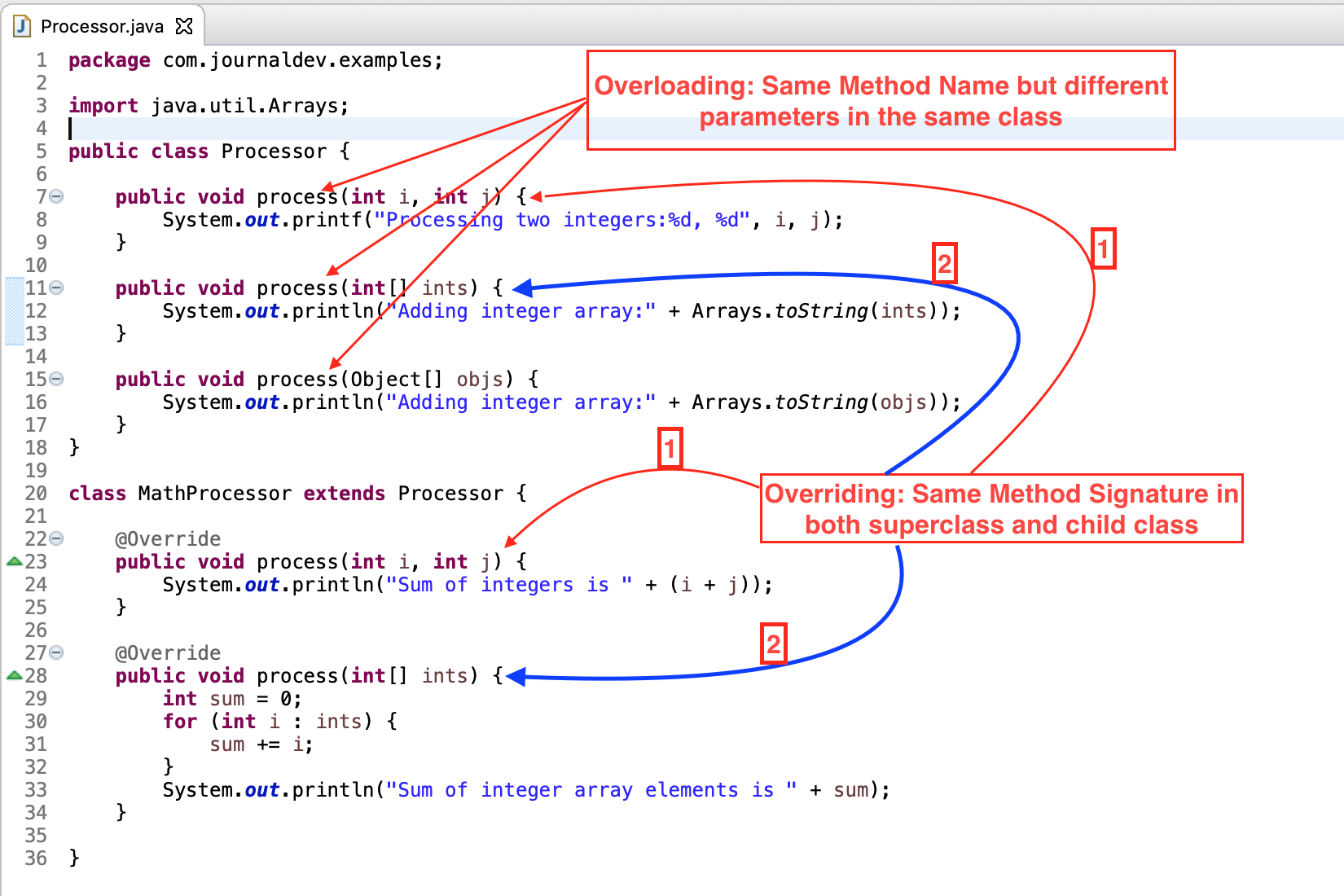Introduction
Overriding and overloading are the core concepts in Java programming. They are the ways to implement polymorphism in our Java programs. Polymorphism is one of the OOPS Concepts.

When the method signature (name and parameters) are the same in the superclass and the child class, it’s called overriding. When two or more methods in the same class have the same name but different parameters, it’s called overloading.
Comparing overriding and overloading
| Overriding | Overloading |
|---|---|
| Implements “runtime polymorphism” | Implements “compile time polymorphism” |
| The method call is determined at runtime based on the object type | The method call is determined at compile time |
| Occurs between superclass and subclass | Occurs between the methods in the same class |
| Have the same signature (name and method arguments) | Have the same name, but the parameters are different |
| On error, the effect will be visible at runtime | On error, it can be caught at compile time |
Overriding and overloading example
Here is an example of overloading and overriding in a Java program:
Overriding
The process() method and int i, int j parameters in Processor are overridden in the child class MathProcessor. Line 7 and line 23:
And process() method and int[] ints in Processor are also overridden in the child class. Line 11 and line 28:
Overloading
The process() method is overloaded in the Processor class. Lines 7, 11, and 15:
Conclusion
In this article, we covered overriding and overloading in Java. Overriding occurs when the method signature is the same in the superclass and the child class. Overloading occurs when two or more methods in the same class have the same name but different parameters.
Thanks for learning with the DigitalOcean Community. Check out our offerings for compute, storage, networking, and managed databases.

hello, very happy with this website.
- ranjit vamadevan
Thanks a lot for appreciation of our work.
- Pankaj
thanks for clear explanation of difference
- MOHAMMAD AHTISHAM
Nice, concise explanations. Referring my students here for this topic.
- Mark Miller
Thanks a lot for appreciating our effort.
- Pankaj
Great explanation of the topic. You made it simple and easy to understanding. Thank you.
- David
Its good but with an Example its better for more Understanding. Overall efforts are good.
- Shriganesh Mane
Thanks you. because l have irritating this concept understanding after that your implement concept and explain easy understanding ,so iam very happy
- ambika
Thanks for the information, you have helped me a lot.🙏
- Tinenenji July